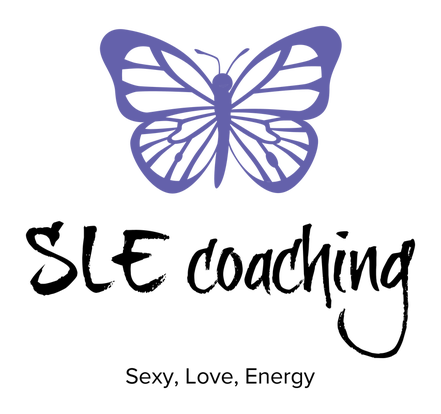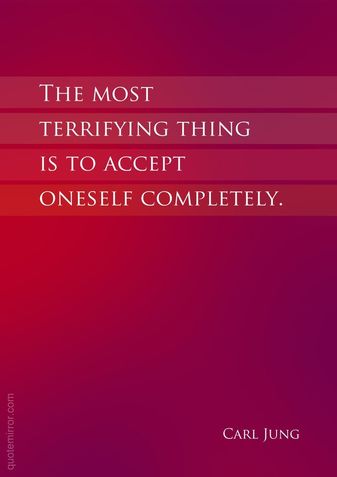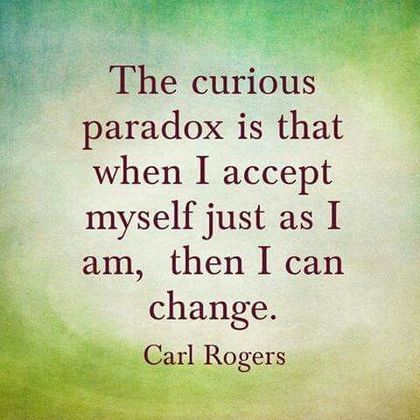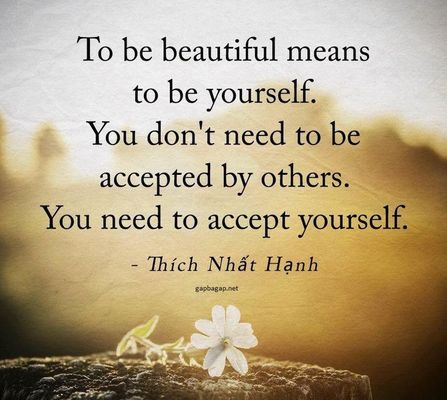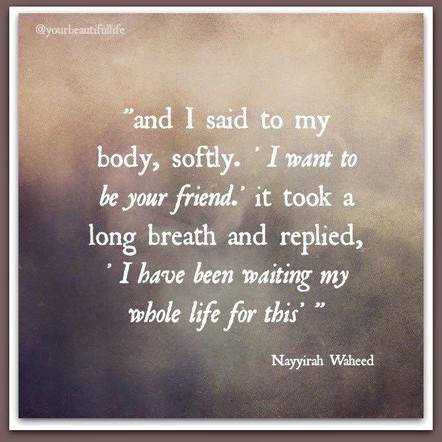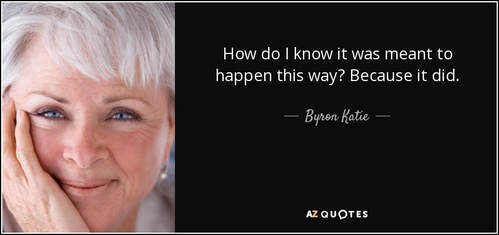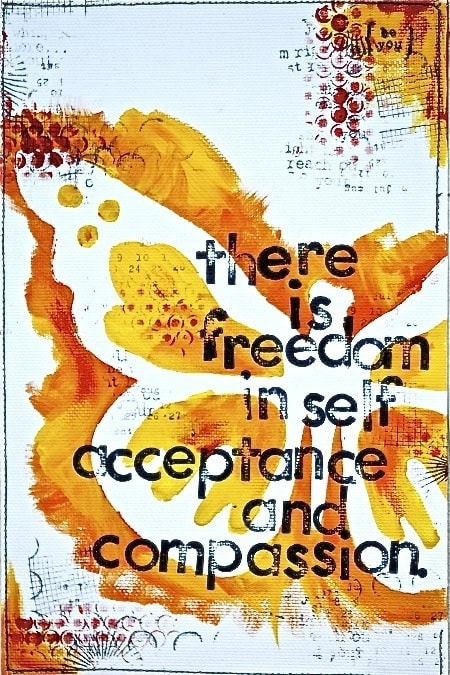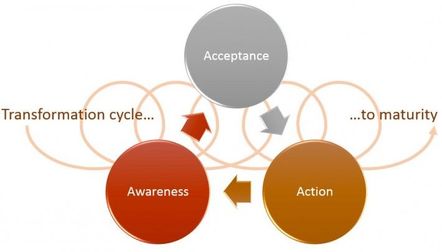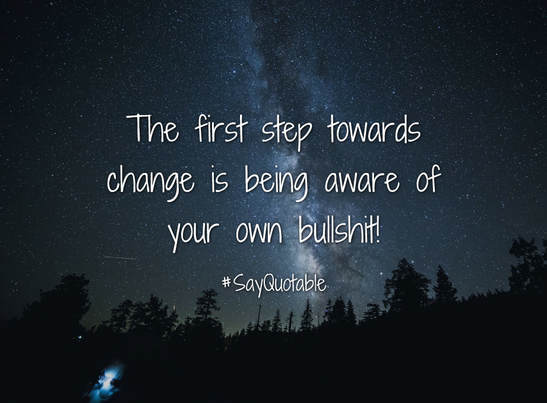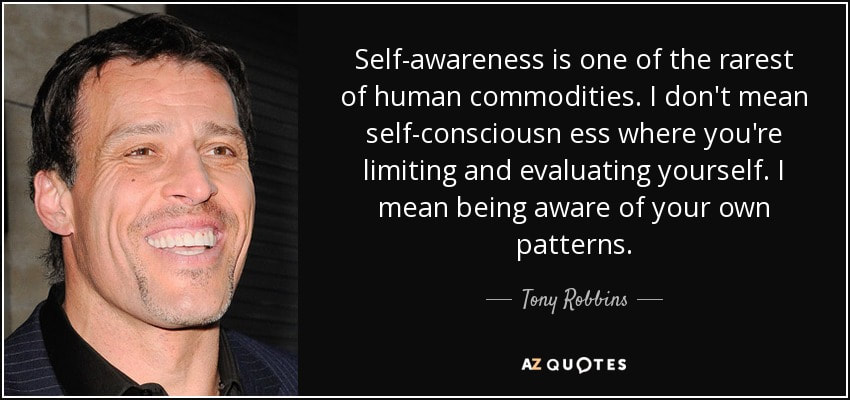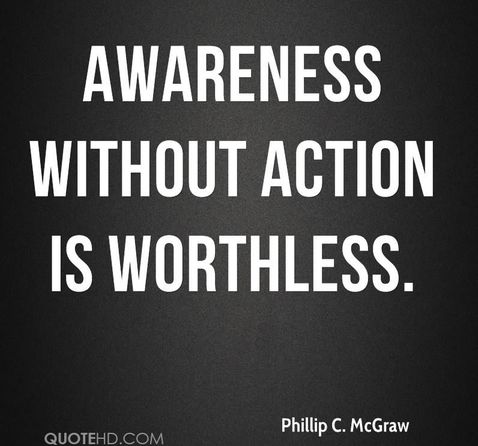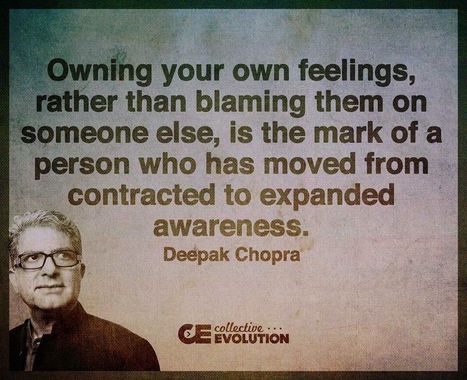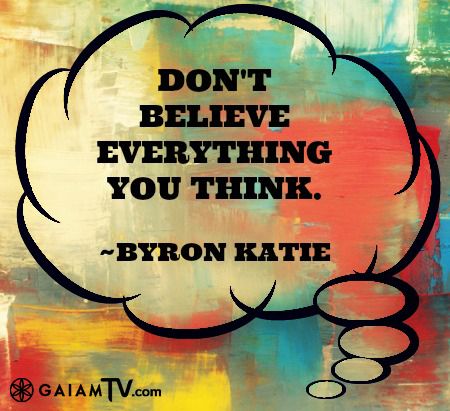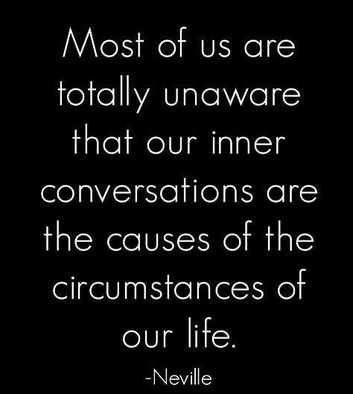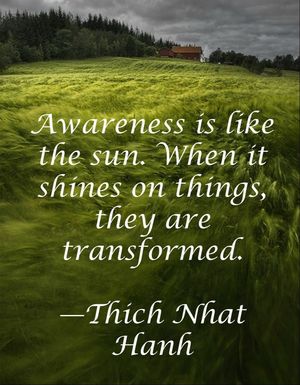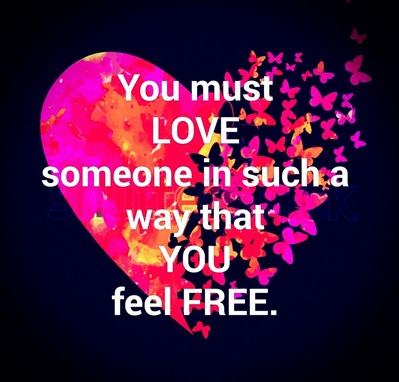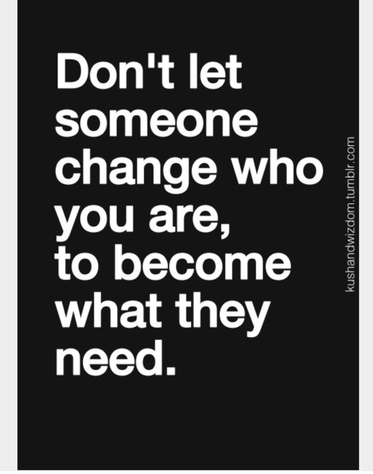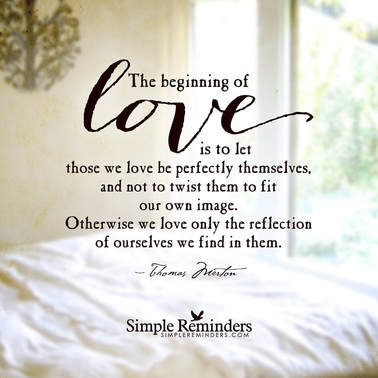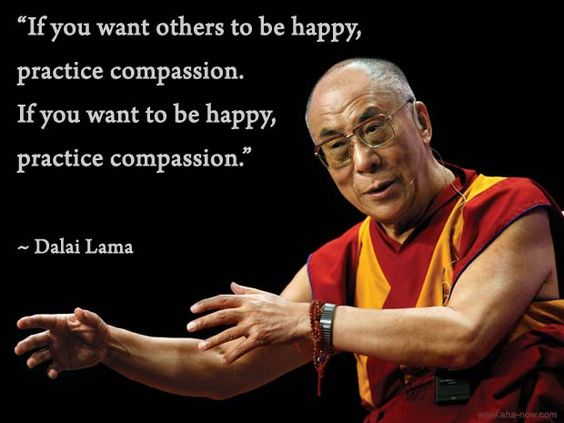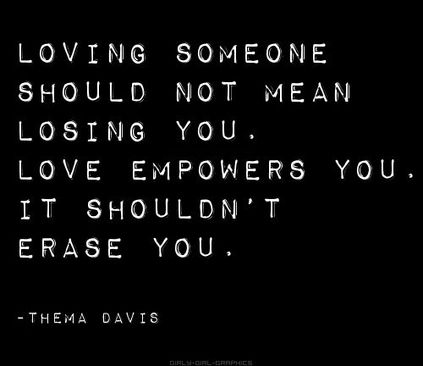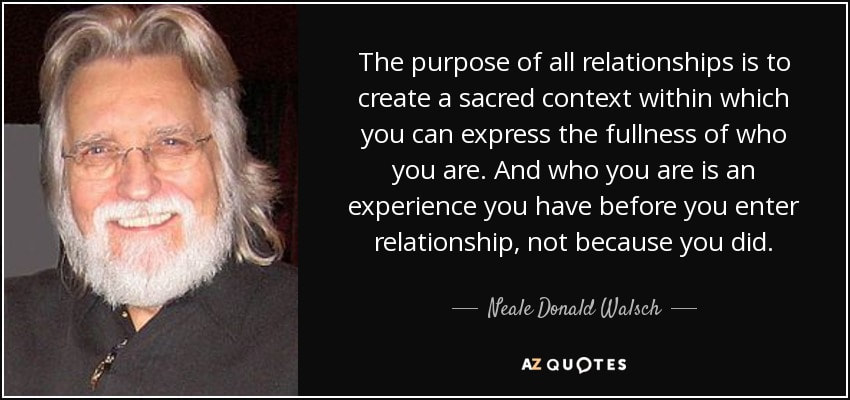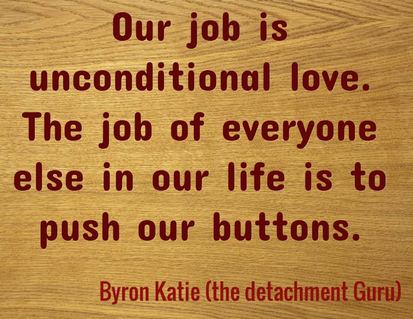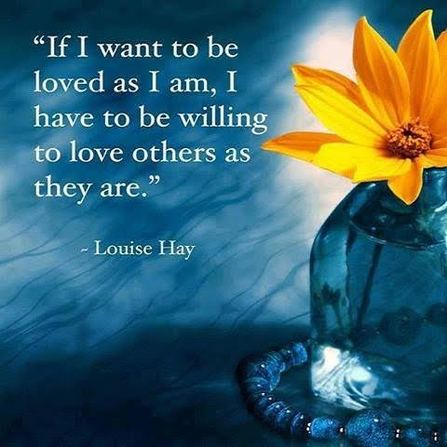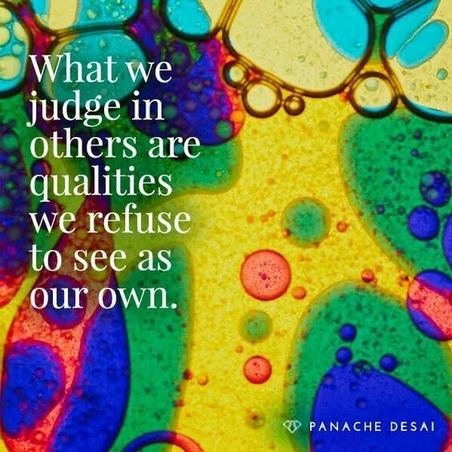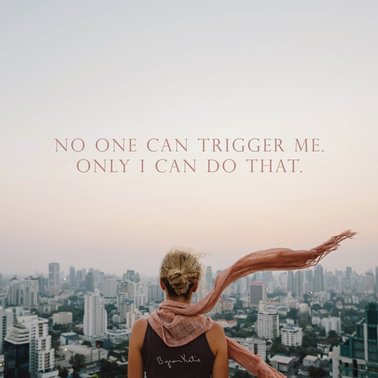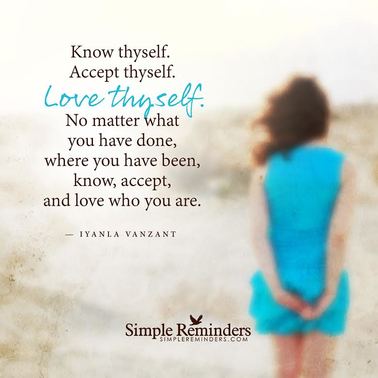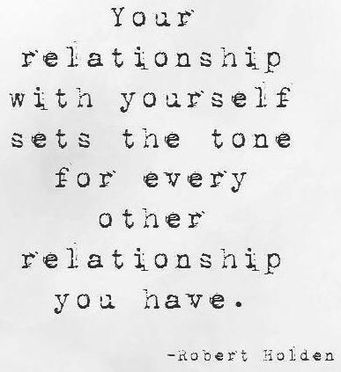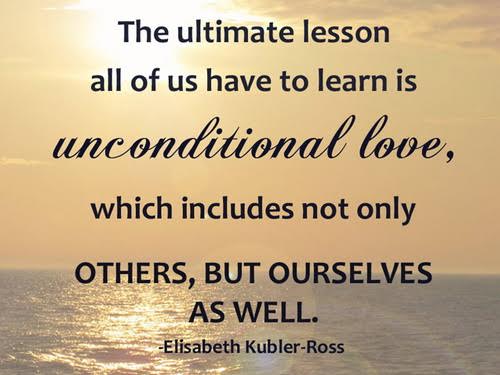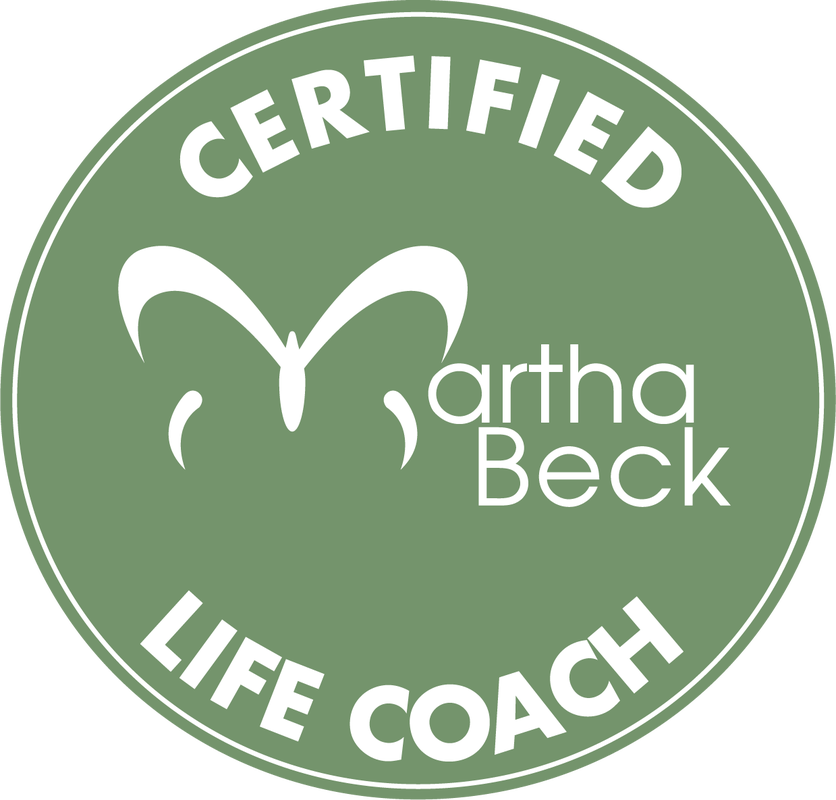|
Self-acceptance. Whoa, this is a biiiiiig topic. It has many tentacles with body image, relationship stuff, our shadow self, for the most part we all seem to have some sort of belief that there is something “wrong” with us – we are either not enough or too much or flawed in some way that we are just unwilling to accept. This lack of self-acceptance drives us to do, say, eat, think, things that are very harmful to ourselves. It can drive us to over work, be perfectionistic, shame ourselves for not doing enough, people please, become addicted, the list goes on and on. When we don’t accept ourselves – we will suffer at our own hand (and mind) because when we aren’t accepting, we are judging and believing things, people, our ourselves should be different than they are. Even the idea of “loving what is” terrifies us because we think that means we’ll stay exactly in the unacceptable spot we’re in. So we stay on the run, reacting, stressing, aaaaand suffering. Unfortunately this unwillingness to accept things exactly as they are is what keeps them sticky and glued in place. A.k.a. RESISTANCE. I saw a Truthbomb by Danielle LaPorte in her most recent book White Hot Truth that almost made my brain hurt… “Can you imagine not craving to be different than you are right now?” Ummmm… no, I can’t even imagine that actually – you mean that’s an option? Don’t get me wrong, I have glimpses. Moments when I have my heart wide open, focusing on love, and feeling full of compassion for myself and others. The culprit that most often will kick me right out into the ditch is either something to do with body image, or a relationship thing. They say being consistent makes you a professional – but this is not something I care to be a professional at! In her book Radical Acceptance, Tara Brach Ph.D echoes what I chatted about here last week, that out emotional patterns are want keep up trapped. Our fears and beliefs keep us caged and in a repeat loop and once we are AWARE of them, we can make our way out of the cage by accepting absolutely everything about ourselves and our lives. What she says this means is to be aware of what is happening in our body and mind in any given moment, without trying to control, judge or pull away. It doesn’t mean we put up with harmful behavior – our own or another person’s. It’s recognizing what is happening inside us and regarding what we see with an open, kind and loving heart. Now once in a while, some people will confuse acceptance of themselves with meaning they have a free pass to be a jerk to other people. I feel this is why acceptance is STEP 2 in the change or recovery process – because if you don’t first own your own patterns (a.k.a. your own B.S.), there’s a really good chance you will think accepting yourself means you should tell other people how to live or say things that are not loving in the name of “accepting yourself”. You simply can't change yourself unless you accept yourself first and you can't accept what you aren't aware of. For my 2¢, who we all are at our core is LOVE. We are not our bodies, our thoughts, our beliefs, our relationships, our jobs – even though these items quite often clutter up what we think our identity is. Who we are is LOVE. It’s what we came here to be, do, find, give, receive, and exemplify. To accept ourselves would then mean to accept the love that we are. So this would take care of the excuse of telling others how they ought to live their lives or behave under the heading of “being yourself”. We forget that this is what we are after about age five or so. We get in our own way with thoughts, beliefs, peer pressure, society pressure, you name it – we succumb to the distractions but that’s exactly the whole amazing idea!!! If we just came here for our time on earth and didn’t need to learn or grow – what would be the point! We get lost along the way and finding our way back to the love that we are is kind of the whole point. When we don’t accept ourselves it’s because we’ve forgotten who we really are. I think the other misunderstood idea about self-acceptance is the belief that if I accept myself as I am, it means I'll be giving up on the idea of changing and growing. This is another one of those curious paradox's of life... the reality is, that until we accept ourselves, we really have limited ability to make real change. As Esther Hicks says "Be happy with where you are and eager for more " the present moment and conditions are always temporary. Real change happens in our lives when we accept ourselves, others, our life – right where they are. Holding our experience with compassion is what sets us free. I still have plenty of work to do in this area. Noticing how I feel and actually honoring it – that’s some heavy emotional lifting some days. But just like physical strength training, we can train that emotional muscle too. As Robert Holden puts it in his book Happiness Now! "Happiness and self-acceptance go hand in hand. In fact, your level of self-acceptance determines your level of happiness. The more self-acceptance you have, the more happiness you'll allow yourself to accept, receive and enjoy. In other words, you enjoy as much happiness as you believe you're worthy of.” This is a pretty compelling case for cultivating our self-acceptance – it leads to more happiness! Also a big clue if you or someone you know is very unhappy – there is a glitch in the self-acceptance department. Probably the thing that grows our self-acceptance the most is growing our self-compassion. Assumption of positive intent, or acknowledgement that you are doing the best you can (and your best doesn’t always look exactly the same each day) AND so is everyone else… will lead you in the direction of self-acceptance. The other thing you will have to do if you want to grow your self-acceptance muscle is quiet the gremlin in your head. My former coach Delia has a great way of address it… rather than telling it to shut up – which won’t work – you invite it in, ask it to sit down, have some tea and tell you what it wants you to know. Listen, then tell it you appreciate it looking out for you – but you got this and it can go over in the corner and sit down for now. It also helps to name it, so when it shows up you can just say “Oh, that’s just Zelda again – she’s always a little anxious and trying to protect me, I’ll tell her she can relax”. So yup, if you can even accept your gremlin rather than disowning it!!!
Maybe you’ve seen those t-shirts that say “Flawed & (still) worthy”. That’s what all of us are for sure. Self-acceptance leads very quickly into acceptance of others. With more self-compassion you’ll see compassion for others come right to the top too. When we first become AWARE of our stuff and then ACCEPT it – next up we are able to make changes that move us towards being even more whole. That’s freedom baby. Freedom. XOXOXOXO Sandy
2 Comments
My definition of self-awareness kind of boils down to owning your own bullshit. And by "bullshit" I am referring to our emotional and mental PATTERNS. While many people may assume they are self-aware, in fact, 95% of people believe themselves to be self-aware. The reality is – self-awareness is rare. Only 10 to 15% of humans actually ARE self-aware. Dang. This is unfortunate, because being aware of who we are and OWNING it has a huge impact on the quality of your life, your career and your especially the quality of your relationships. In fact pretty much all problems in relationships are a result of our own mental and emotional patterns. When we are unconscious of them or unwilling to take a look at those patterns, we cause a lot of pain for ourselves and others. I don’t know if you’ve ever stopped to consider your level of self-awareness. What is self-awareness exactly? Psychologist Daniel Goleman, in his best-selling book “Emotional Intelligence”, defines it as “knowing one’s internal states, preference, resources and intuitions”. So the ability to monitor our inner world, our thoughts and emotions as they come up and understand how they impact our behavior. Tony Robbins says that one tool can help you achieve self-awareness... love. He outlines self awareness like this... 1.)Your able to identify what you are really feeling. 2.) You acknowledge and appreciate your feelings knowing they support you. 3.) You get curious about the message the emotion is offering you. When you get curious about the message, it is always about YOU. We must OWN the message because it's never ever about the other person or the condition - it's about you and the meaning you have put on it. "What would I have to believe in order to feel the way I’m feeling?” What is the mental or emotional pattern I'm running here? We all have emotional patterns that we run on. It’s completely possible to live your whooooole life and never question why you think or believe what you think and believe. When we don’t get curious and look internally – we are not self-aware. This may be a totally fine route for some, but if you have an interest in being empowered, happy, loving, physically healthy, even a good leader – you may want to open to the idea of becoming more self-aware. Yeah, it’s that important. Here are a few signs that you are NOT self-aware from consultant Steve Tobeck…
Changing a mental or emotional pattern takes practice. LOTS of practice! If you claim to be aware of your own bad habits/bad attitudes/hurtful behavior…a.k.a. “your own bullshit” and you continue to repeat these items over and over again with minimal attempt to tame them – you are NOT self-aware. While that appears to be apathy…in reality it is simply FEAR. It can be scary to get curious about your own patterns, scary to think you are responsible for your experience in life. We all have an emotional center of gravity that we return to. We all have emotional patterns and if you know better, but don't do better, that is a pattern in your brain that is running you, and your brain is not designed to make you happy - it's designed to keep you safe. I love this factoid about awareness…”there is also a non-judgmental quality that is an essential component to self-awareness. As we notice what’s happening inside us, we acknowledge and accept it as the inevitable part of being human, rather than giving ourselves a hard time about it.” So self-awareness is tied tightly to self-acceptance and compassion. Getting to know yourself leads to starting to accept yourself and once we are on this path – we are on the way to being compassionate not only to ourselves – but also to others. Conversely if I blame, react, attempt to control, make excuses, or deny my part in what I’m feeling and experiencing, it is nearly impossible to feel not only acceptance of myself, but also of others. Being WILLING to look at your own part in what is happening in your life, work, relationships and being curious – with a desire to learn and understand rather than judge and condemn is the foundation of a great relationship, both internally and externally. Self-aware people tend to act consciously rather than react unconsciously in their patterns, and they tend to have a positive outlook on life. They are also more likely to be more compassionate to themselves and others." What are a few of the other signs those who are self-aware exhibit?
When we are more self-aware it doesn’t mean we don’t make mistakes, it means we learn from them. We look at them as ways to understand and learn about ourselves rather than going on a guilt trip. When we mess up, we own our part in things without kicking our own backsides for days (or years), taking it personally or blaming and making excuses. Some ways to cultivate self-awareness…
A great example of how we are often asleep at the wheel of our own self-awareness is when we try to justify or state our case when we feel hurt in some way. This is a beautiful cue that we are not understanding our OWN side of the street. Simply put... if you are feeling emotionally charged by someone else - you're not owning your own stuff. There's something that needs your attention within yourself but you are ignoring it by focusing on the behavior of the other person.
I can see this SOOOO clearly in others who suffer, but I when it's me - I want to point out how "wrong" the other person is, how THEY need to be different in some way. When you've really worked through something that's emotionally hard, there's no satisfaction in talking about it or dropping little snarky bombs about the person. Being willing to question your own thoughts, beliefs, auto-pilot reactions is what it takes to become self-aware. Re-check that list above of symptoms of NOT being in self-awareness. When you catch yourself in any of those items (and most of us will) in the next few days, see if you can hit the pause button. Check-in with yourself and ask what is really going on for you. Why are you tempted to blame, defend, make an excuse, or any of the items listed. Dig a little DEEPER than just projecting your crap onto the other person… OWN IT. As Brene’ Brown says “Rumble with it”. See what you find and give yourself your power back! When you find yourself feeling funky and you are making it about the other person (not owning your stuff), here are three questions from Terry Cole that might help...
Get curious about YOUR feelings, YOUR attempts to make it about the other person and see what you find – without judging it. Just observe the information you find… that’s self-awareness and that’s the ticket to freedom and all the stuff you are looking for. It's inside of YOU. Get curious. Be aware of your OWN bullshit. XOXOXOXO Sandy Just the mention of the word… “Compromise” can cause me to curl my lip like Billy Idol. AACK! Seeing our relationship with another person as something that requires us to “give-up” something is about as attractive as eating bugs. No thanks. I recently read something by marriage therapist Gay Hendricks on this topic that had me saying “YES!” to my computer screen. He was talking about how we have this false belief that relationships take WORK. “The ‘it-takes-work’ idea stems from the fact that two people coming together have differences. That is true, no need to deny it. But where the idea goes off kilter – and causes unhappiness for couples – is the belief that these differences need to be ironed out, compromised with, sacrificed for, and generally worked at very hard if we want to be happy. This is a big FALSE!” The idea of compromise in relationship has led me to some very unhappy places in those relationships. When we believe that we need to lose ourselves for the sake of our partner OR! When we believe our partner needs to compromise who THEY are to make us happy – we are setting ourselves up for suffering. Compromise implies that you will be getting less, not more. It’s a lot like taking a job you don’t like for the money, or saying yes, when you really want to say no. If what we desire is a relationship that is free, loving, and causes us to grow – the essence of each person must be recognized and allowed to shine. It’s that part of you that lights you up, makes time fly by, your “sweet spot”. If either person in a relationship feels they aren’t living in their essence or sweet spot – conflicts are going to happen. A lot actually. I wrote last week about conditional love and how it makes it difficult to feel intimacy. We are always playing out our relationship with ourselves in our relationships with others. So if I have a lack of love for let’s say my physical appearance, I am judgmental toward my body, think it SHOULD be different than it is and I resist loving it because it’s not what I think it should be. I don’t know if you’ve noticed? This approach doesn’t work. It’s painful, hurtful, and does not cause change. We play out this same scene with others when we treat ourselves this way. If only he would be more loving, if only she would appreciate me, if only he would pick up his dirty clothes, THEN life would be awesome. If we don’t respond to OURSELVES when we make demands or criticize ourselves or think we should be different than we are somehow – why the hell do we think this approach will work with others??? It doesn’t. It causes separation, distance, and kills spontaneity and freedom in our interactions. If it seems like the fun has disappeared from your relationships, take a look at yourself and ask if you are expecting the other person to change in some way. It's a big time fun killer. Freedom in a relationship comes with really knowing who you are (Awareness), and knowing that other people are never doing anything to you, they’re just doing it. As Tracy McMillan says “Feeling free comes down to loving people (and yourself) right where they are (Acceptance). Since you don’t have any real power over how another person feels, why not just work on setting yourself free and see how that changes the relationships you’re in?” (Practice). What if: 1.) Instead of seeing your relationship as something you need to be “working on”, you instead shifted to celebrating the differences you have been trying to get someone to compromise on? 2.) Instead of focusing on how you or your partner need to change, you did your own work on accepting YOURSELF? Feeling loved for who we are is the most beautiful, amazing feeling on the planet. I had the incredible blessing to have experienced this feeling in my lifetime. If that is the feeling we want – to be accepted for who we are and not have to compromise who we are to be loved, we must be at least WILLING to give that to ourselves. Here’s my suggestion…instead of seeing our relationships as a place either we ourselves or others must compromise – chose a different word that starts with the letter C… Compassion. That begins with making the CHOICE to see them, or ourselves, as they are - and loving them anyway. This is personal empowerment. For me the challenge is that rather than trying to change someone to be different than they are, or feel differently than they do – to just be WITH them and not take it on personally. We all get to do things the way that is best for us and we all have our own spiritual path to walk. If I can just walk along side that person and be with them without trying to tell them where to go or how to be, I have entered into compassion and love… without compromising my own light. When we compromise who we are to accommodate another, we have abandoned ourselves. No one outside us is doing this to us. Important to remember the turn-around as well… don’t expect another person to change to be what YOU need. So rather than compromise, try compassion and loving-kindness. Stay true to you and that will cause your light to shine brightly into the world. Allow others to stay true to themselves so they can do the same. The purpose of a relationship is NOT to dim yourself or to compromise who you are. It is to grow spiritually and personally, to become more as a result of being in the relationship – not less. So my suggestion… notice when you are asking your partner to compromise and see if you can try a sprinkle of acceptance or compassion. You will only be able to do this if you start with yourself. When you become aware that you are compromising who you are, how you feel, what you know is true for you in order to accommodate another person – see if you can show yourself a little loving-kindness. Check in with yourself and see what feels like YOU, the real You. My man Tony Robbins has a great suggestion about compromise in relationships… “Trade your expectations for appreciation and the world changes instantly.” XOXOXOXO Sandy Unconditional love. We probably all desire it, think that we give it, if we’re lucky we’ve received it at some point. It just might be the whole point of why we are all here. To find our way back to the pure love we all started out being and giving, and clear out all the crud that causes us to forget who we really are. It seems to me that unconditional love requires us to have non-attachment. Letting go of outcomes, expectations, judgments, and our tight grip on how we ourselves and others “should” behave. It requires a decluttering of our beliefs about how others ought to be living, thinking, feeling and wanting out own way so that we can live free and open. Conditional love is when we think “If you will change your behavior or the conditions are just right, I will feel better and THEN I will fully show up in this relationship. THEN I will give you love. By doing this, we are actually making the other person or a condition responsible for how we feel. Quite simply… this never works out well because it means we have given our power over to someone or something who we have no control over. Those of us (oh yes, me included) with codependent tendencies or patterns tend to be conditional. We think we need to manage and control the conditions of how others experience us, what they do, what they feel and think, and THEN we will be happy, safe, “normal” (whatever that is). If it sounds exhausting, it is. Trying to manage conditions or how other people think and feel is endless, because it's an impossibility. As Esther Hicks says, “Never ask another for behavioral changes as your basis for an improved emotion or perspective. It won’t work.” To love conditionally is to be in resistance and resistance is all about fear. If we wait for conditions to give or receive love, we’ll be waiting a very long time. Instead, if we tune into the frequency of being love, without the requirement of certain conditions we have deemed required for us to show up and stand fully in our light, we aren’t only short changing those we care about – more than anything we are robbing ourselves of our purpose, our passion, and living fully. We dis-empower ourselves and give all the power to other people and conditions, a.k.a. being a victim. Now, let’s clarify early on, does this mean we let people run roughshod over us and our emotions in order to love unconditionally?? Um…. NO! If you are on the receiving end of blaming, shaming, someone requiring you to change in order for THEM to be happy and "all in", this is an indicator that it’s time to look at the health of your own boundaries. When we allow others to take advantage of us or control us through shaming or blaming, our boundaries need some updating and review. It may also mean we need to love this person from a distance, without blame or judgement - just boundaries. You CAN love someone unconditionally, and to do this you will need healthy boundaries to protect your wide open heart. Without boundaries, we cannot love unconditionally. Dr. Brene’ Brown found in her research that the most compassionate people are also the most boundaried. They take care of themselves and protect their heart so they can keep it open. They know where their responsibilities begin and end. What belongs to them emotionally and what belongs to the other person. Boundaries aren't for the other person. They are for ourselves. They are a function of self-respect and self-love. Boundaries are about being responsive - not reactive, and are grounded in self-responsibility as well as self-compassion. Boundaries are NOT about control of another person. That's called an ultimatum and those are reactive and blames the other person for our own lack of boundaries. Once again, not taking care of our OWN side of the street when we blame or issue ultimatums. When we lack healthy boundaries, we will tend to abandon ourselves with things like blame, judgment, getting angry, seeking approval, people pleasing, and jealousy. When you abandon yourself – you make your partner responsible for you and your feelings. Not cool. Also not possible. Why would you put the power of your happiness in someone else's hands? This, in my opinion, is a big stumbling block in many relationships. When we are truly focusing on our OWN growth – we aren’t blaming, shaming, attempting to control another person. When we do this it is a clue that we are out of our own business and avoiding looking at our own side of the street and avoiding working on our OWN growth by focusing on the indiscretions of the other person and how they are causing our suffering. When your locus of control is other people, you are easy to manipulate. I admit, I too am a blamer at times. As my therapist Joy says "Blame is a place that creates permission to not do any of the work to get better. It's passing the monkey to the other person and saying - 'it's not my fault, so you do something about it.'" For a great short (three and half minutes) video on blame with Brene' Brown click here - it's worth the 3 minute investment. Blame is simply the discharge of pain and discomfort and it is a relationship killer. To have a shot at giving and receiving unconditional love, it appears to me we have to apply the same things that my counselor Joy says are hallmarks of recovering from codependency:
Our relationship with OURSELVES is played out in our relationships with others. So let’s say that someone I care about seems to make their love for me conditional on my behavior. What that person is showing me is how they feel about themselves. That unless they check all the boxes that they have deemed necessary to be “okay” they can’t love THEMSELVES. I can tell you that knowing this intellectually does NOT make it any less painful when someone withholds their love from you unless you live your life a way they have deemed best for them – but it CAN help you learn from it and notice what you need to do to love yourself no matter what. When someone makes their love conditional, we have a choice... we can feel guilt, fear, believe we need to change to meet their conditions, get angry, blame, pout - all are reactions and all are based in fear and low self-love. Plan B anyone??? We can choose to RESPOND, take a moment, take a breath, and see what this is here to teach us about OURSELVES. If someone important to me makes their love conditional, I might want to ask myself where my love for MYSELF is conditional. Is it when I lose the weight? When I make the money? When I pay off all my debt? When I get better clothes? Am I making my love and acceptance for myself conditional? What is this person here in my experience to show me about myself? Yes, they are showing you how they love themselves, and if they are in your life - there's a good chance your frequencies are a match on some level. What can I learn and understand about the other person and most importantly about myself in this condition? To the degree that we love ourselves, right where we are - no matter what the conditions of our bodies, our life, our relationships - is the same degree we love other people. When you are willing to love yourself unconditionally, you will let everyone else off the hook for your happiness. You love because it's what you are. XOXOXOXO Sandy |
Sandy Edie HansenI use this space to "Chat" about things I am working through and learning in my life currently. Join me! Archives
September 2022
Categories |
Proudly powered by Weebly
